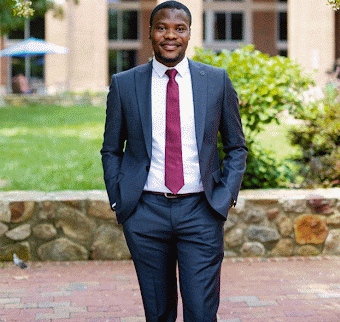Around the world, health systems are under pressure not only from disease outbreaks or population surges, but from a quieter epidemic: inefficiency. The World Health Organization estimates that between 20 and 40 percent of global health spending disappears into waste every year. For financial analyst Ridwan Abdulsalam, the real question isn’t how to raise more money, but how to make existing funds do their job.
Working with Blue Health Intelligence in Chicago, Ridwan designs financial models that map the flow of resources across healthcare networks, tracing where capital moves, where it stalls, and where accountability fractures. “We’ve built systems that optimize costs but not care,” he says. “If the model doesn’t see the patient, it can’t solve the problem.”
His work has helped streamline how healthcare data informs funding allocation, improving operational efficiency by nearly 20 percent. The models he develops forecast cash needs, evaluate performance, and spotlight inefficiencies, turning numbers into levers for better outcomes. “When data becomes honest,” he adds, “decisions start to make sense.”
The implications stretch well beyond the United States. From Europe’s aging populations to Africa’s expanding healthcare markets, every system faces the same tension of limited resources against limitless demand. Ridwan argues that the solution lies not in more spending, but in more intelligent structuring. “Financial discipline and medical insight shouldn’t live in separate rooms,” he explains. “When we integrate both, we start funding care that actually works.”
He often points to Nigeria’s Basic Health Care Provision Fund as a case study in untapped potential. With transparent, outcome-based modeling, such national health funds could evolve from budgetary exercises into performance-driven investments. “We can’t plan effectively without seeing the numbers,” he says. “If models track outcomes like patient retention or preventive coverage, then we can spend based on results, not routine.”
Ridwan’s broader argument is that healthcare finance needs to evolve from accounting to accountability from recording what’s spent to proving what works. “The math isn’t the goal,” he cautions. “It’s the language that lets us see whether systems are healthy or just surviving.”
As global health costs climb, his work stands as a quiet counterpoint to the usual innovation narrative. Ridwan believes the next major medical breakthrough may not emerge from a laboratory filled with microscopes and test tubes, but from the financial blueprints that determine whether those labs even exist. To him, progress begins in the balance sheets then to how funds flow, sustain, and serve. The systems that keep hospitals open, clinics supplied, and patients seen, he argues, are themselves instruments of healing when designed with precision and empathy.
And as Ridwan puts it, the question isn’t whether smarter financial models can fix healthcare, it’s whether the world is ready to trust the numbers that reveal the uncomfortable truths beneath the surface. Data, he argues, has no bias; it merely reflects where systems fail to meet their promise. As such, numbers don’t heal people, he says, “but they tell us why people aren’t being healed.” The challenge, then, is not invention, its acceptance: letting data drive the difficult reforms the sector resists.



































